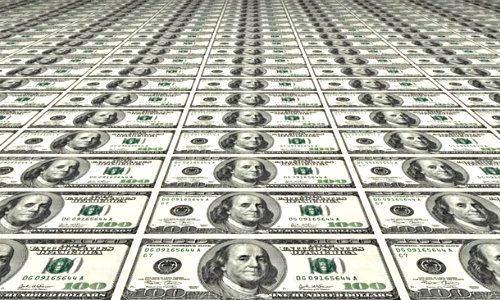Credit Suisse's Zombie Billion-Dollar Fight
Nine years after Lehman Brothers went broke, Credit Suisse is entering the final stages of a legal dispute. The Swiss bank is claiming more than $1 billion from the remnants of the U.S. investment bank.
Everyone in banking remembers where they were when Lehman Brothers crashed. The derivatives industry in particular was roiled after the fourth-largest U.S. investment bank led the country into a deep crisis, from which the economy still hasn't fully recovered.
Credit Suisse was linked to the felled U.S. bank almost from the start: the bank had sold Lehman structured products to retail clients. The bank's then-general counsel, Urs Rohner, who today is the bank's chairman – ultimately bowed and agreed to pay 150 million Swiss francs to roughly 4,000 disgruntled clients.
«Zombie Paper»
Credit Suisse has yet more ties with Lehman Brothers over derivatives: the Swiss bank was one of the Wall Street's biggest providers of the products in the run-up to the financial crisis, and had more than 20,000 transactions open with Lehman when the bank failed. These so-called zombie papers have been the subject of lawsuits between the collapsed firm and Credit Suisse for the better part of the last decade – and $1.3 billion is at stake.
It is Credit Suisse which is seeking more than $1.2 billion from the vestiges of Lehman. The U.S. bank's has filed a countersuit, claiming that the $1.2 billion sum is conjured up, and seeking to recover $150 million.
Citi's $2 Billion Hit
Another noteworthy Lehman settlement last week indicates that Credit Suisse's tangles are probably also nearing an end: a New York court order Citigroup to pay the remains of Lehman $1.74 billion over derivatives contracts.
The decision, the first of its type in the Lehman case, is noteworthy for Credit Suisse because the basics of the dispute are near-identical. Lehman also countersued Citi, arguing that the U.S. bank had inflated values – basically because it could. Lehman sought – and won – $2.1 billion from Citigroup.
Bloated Values?
Citigroup's legal defeat raises the specter of a similar decision against Credit Suisse: Lehman also accuses the Swiss bank of artificially inflating its demands of Lehman to unwind the derivatives transactions – phantom losses, as Lehman's lawyers termed the markdowns.
Credit Suisse concocted bankruptcy claims to hit Lehman with millions in costs and charges that the Swiss bank didn't truly suffer, claims Lehman, which estimates the actual damage at a paltry $74.6 million.
Vultures at the Carcass
To be sure, investment banks and hedge funds including Paul Elliott Singer actively traded Lehman claims. The dealmakers were cynically referred to as vultures who were attempting to feed at Lehman's rotting carcass.
The $120 billion that Lehman's liquidators have paid out to creditors in the wake of the crisis pales in comparison to the the value that was destroyed in the largest bankruptcy of a financial firm.
CS' Crisis Deals
Clear-eyed observers – rare to find at the time – recognized that even Lehman's assets which fell to effectively zero would eventually fetch a few cents on the dollar as soon as the dust had settled.
Credit Suisse was among those picking through the remains: in 2009, the Swiss bank bought $423 million worth of Lehman claims from hedge fund Citadel. One month later, the bank was shopping $1 billion in claims against Lehman assets on Wall Street, as prices edged higher.
Lehman Sore Spot
Credit Suisse couldn't command the $1 billon for the Lehman assets, and the bank lodged a claim against the fallen bank. In 2013, Lehman countered - a suit which can be expected to be concluded in the foreseeable future following the Citi ruling.
The Swiss bank didn't comment to finews.com on its «zombie billion» – after Credit Suisse's public drubbing for selling Lehman structured products, the U.S. bank is likely still a sore spot. The best case is that Credit Suisse "wins" $1.2 billion – out of the purse of Lehman's creditors.




























